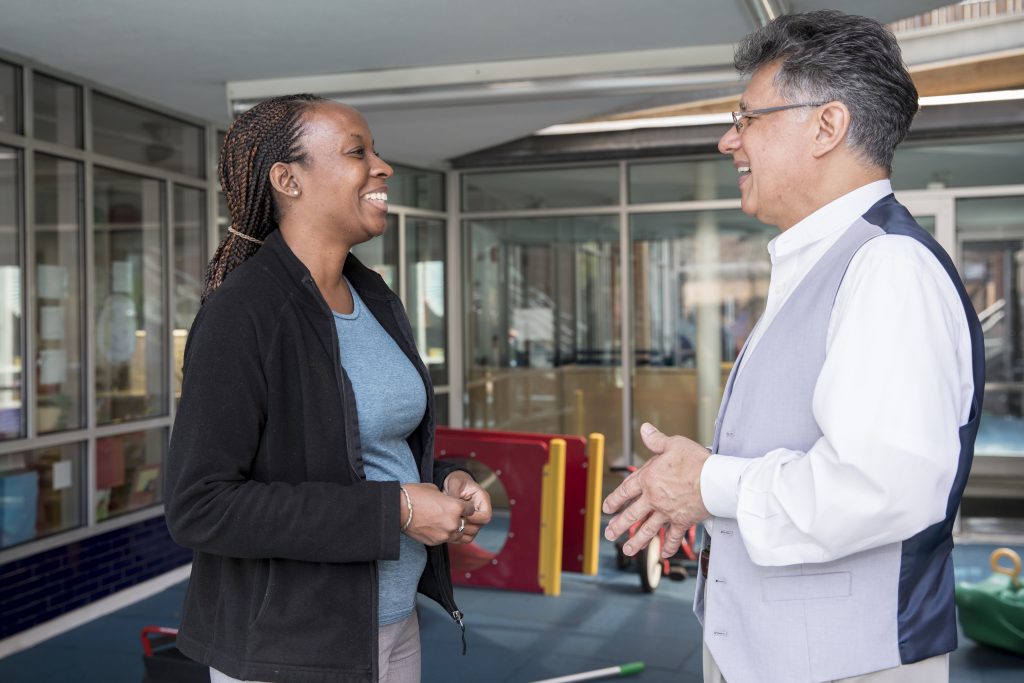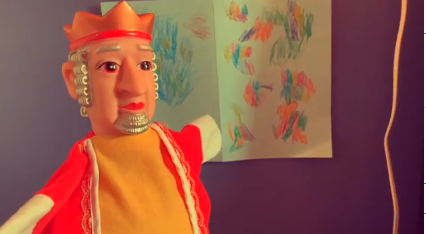“It’s okay to have many feelings.” As an educator in a preschool classroom I’ve often used or heard some version of this statement in conversations with young children. Whether it’s the challenge of separating from a grown-up, excitement over completing a complicated block structure, or the many feelings that go along with seeing the tumbling of that structure; in the classroom we are frequently identifying, discussing, and responding to our feelings. However, the opportunities for this kind of reflection and processing of our own feelings and experiences as educators is often neglected. We need to consider the emotional well-being of our workforce as we navigate the COVID-19 pandemic.
The New York Early Childhood Professional Development Institute in partnership with the Bank Street College of Education recently completed a survey to understand the impact of the COVID-19 pandemic on New York’s early childhood workforce. The survey included early childhood program leaders, teachers, and family child care providers. Over 3,000 individuals who are members of state’s Aspire Registry responded. The survey sought to provide a descriptive snapshot of the workforce during the pandemic in order to stimulate dialogue to help the field navigate this crisis.
In my role as a Research Associate at the Institute, I learned that one of the key findings of the survey was the significant mental and emotional strain of the pandemic on the workforce. The survey explored various ways educators navigate being a support system for children and families, especially during this uncertain period, while still addressing their own mental health. Ninety percent of respondents reported their mental and emotional health being affected by the pandemic. One third of respondents indicated there was great impact. Respondents’ expressed sentiments about the stress placed on them during the pandemic with statements such as: “The impact of trauma has been heavy. Not only for our children and families, but also for our teachers and ourselves. Real grief is being experienced in real time and vicariously…”
Most of us were quickly tasked with finding and implementing developmentally appropriate materials while maintaining the demands of our home lives. Work days that were already not clearly defined have become even less so since the switch to remote instruction. As educators we greet children (now virtually) with smiles, listening as they share their concerns and accomplishments. We make calls to families when extra support is needed and try to think of lessons using objects found at home so all children can be included in activities. All this without the direct interaction and feedback we often get from the children in our care. For some there is great uncertainty about what our future classrooms will look like — or even if they will be open. Added to this dynamic is the loss of previously expected periods of rest such as semester breaks.
Even in the midst of these challenges, many of us have found comfort in each other. Opportunities for sharing ideas, resources, challenges, and successes at adaptations have been especially helpful during this period. Survey participants expressed the importance of this network with comments such as “I cannot begin to say how proud I am of my staff and colleagues. People react very differently to stress/trauma, and we collectively reacted in a very proactive way to the needs of our center’s families.”
Moments spent virtually with family and friends have been great help. Where it does exist, the freedom to take time for mental and emotional healing has been greatly appreciated.
Moving forward, we continue to think of ways to ensure our own mental and emotional health needs are met. We work together to ensure formal supports are in place to keep the workforce functioning at its full potential, acknowledging and addressing all our feelings. What kinds of formal mental health supports have you found most helpful during this time?
Read the full report: New York Early Care and Education Survey: Understanding the Impact of COVID-19 on New York Early Childhood System
Erica Yardy is a Research Associate with the New York City Early Childhood Research Network, a project of the New York Early Childhood Professional Institute, and is a preschool teacher in White Plains, New York. She received her Master’s in Early Childhood Special Education from the University of Illinois at Urbana Champaign and has previously taught in New York City and Barbados.



